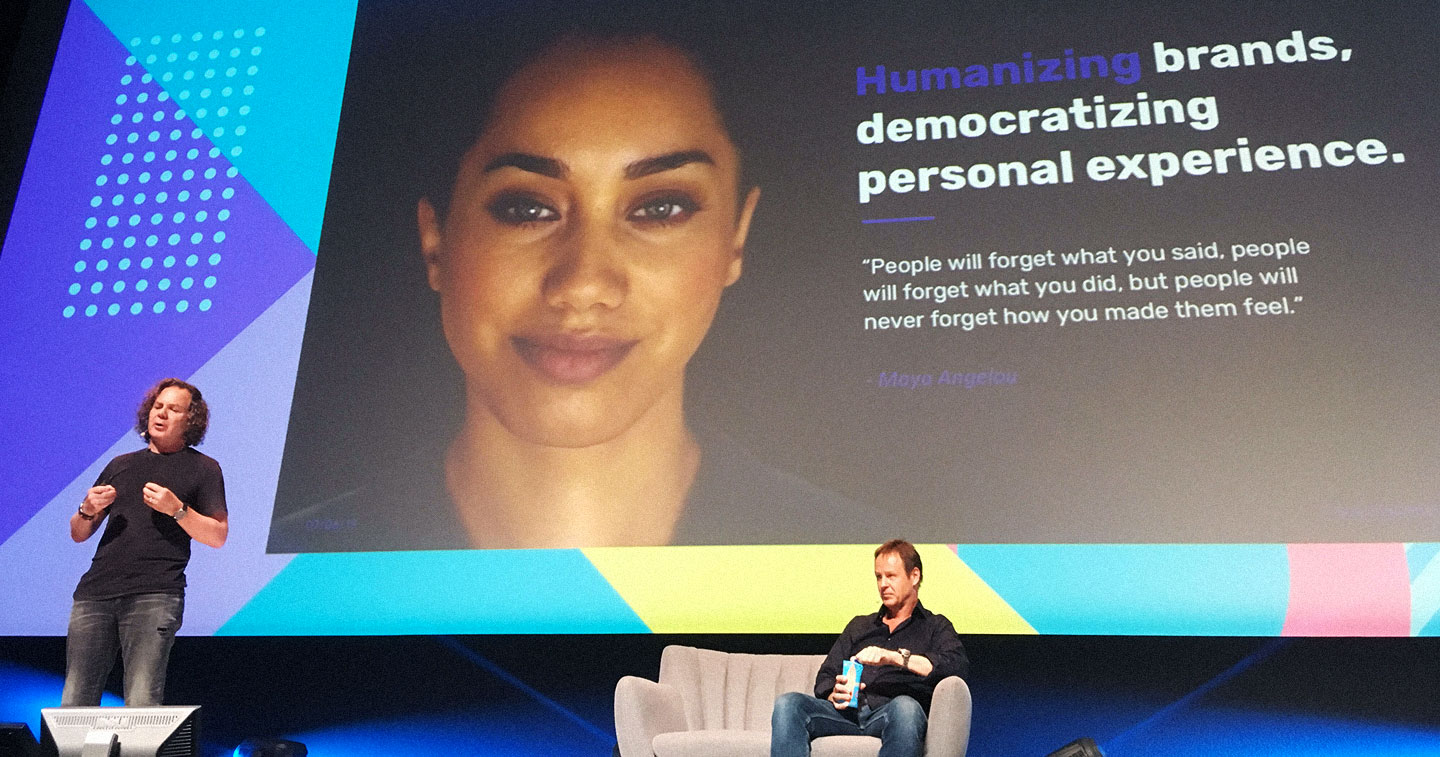Words by Jamie Tolentino-Deludet
Imagine a world where ‘digital people’ can interact with you like a real person would. Well, it turns out that the technology is already here as Soul Machines presented their groundbreaking HumanOS for AI at the Cannes Lions Festival in France, and how it reframes the opportunity for human machine collaboration.
Greg Cross, Co-founder and Chief Business Officer, and Mark Sagar, Co-founder and CEO, of Soul Machines presented the potential of the digital human to a crowd of enthusiastic marketers.
Soul Machines can not only produce exact replicas of celebrities but can also manufacture new faces that fit a certain demographic. They produce hyper-realistic autonomously animated models that can mimic human signals. For instance, when you give eye contact to the model, their neural networks (basically the computer equivalent of a brain) will release oxytocin to create a bond with the human.
An autonomous animated model aka “digital human” can behave like humans and learn in real-time. Basically, they are not deep learning machines but rather experiential learning machines.
So, where can we apply the use for a digital human? Healthcare and education are critical areas for these digital workers to make a positive difference because we don’t have enough doctors or teachers. The first live application of this was released in the form of Yumi, SKII’s digital consultant to guide consumers on how to use their products after purchase.
The key takeaway for brands is that this is not something that you can ignore because if your customers get a 12-18 month lead on you, you may never be able to get that back in the world of artificial intelligence.










